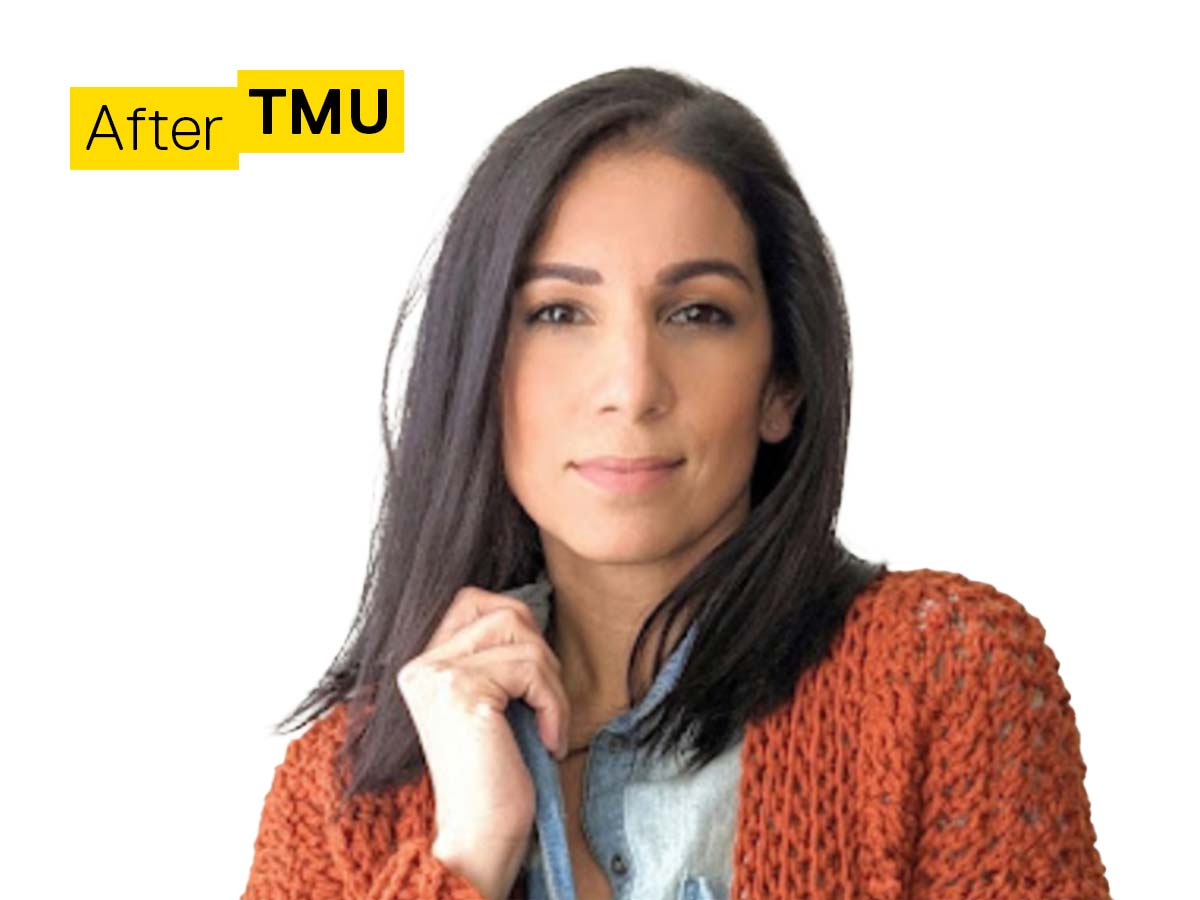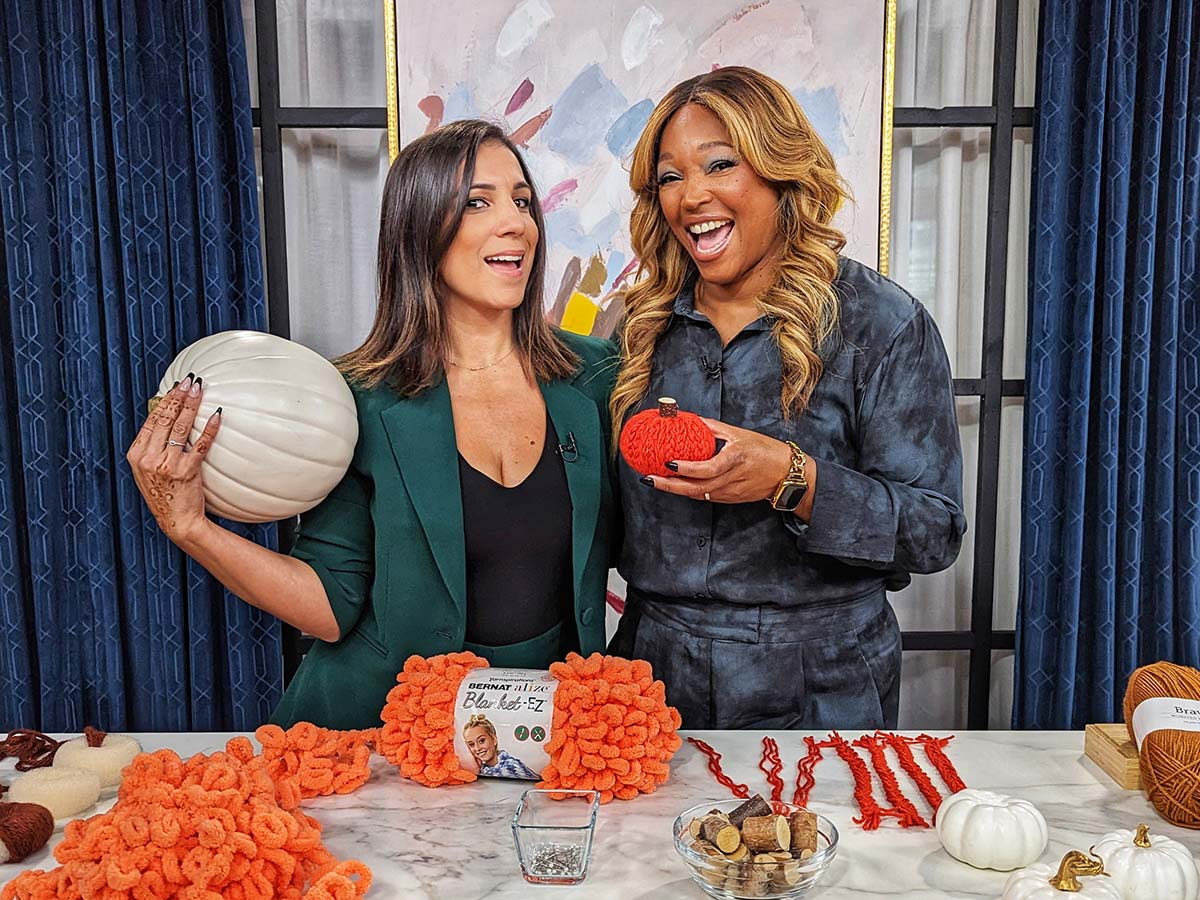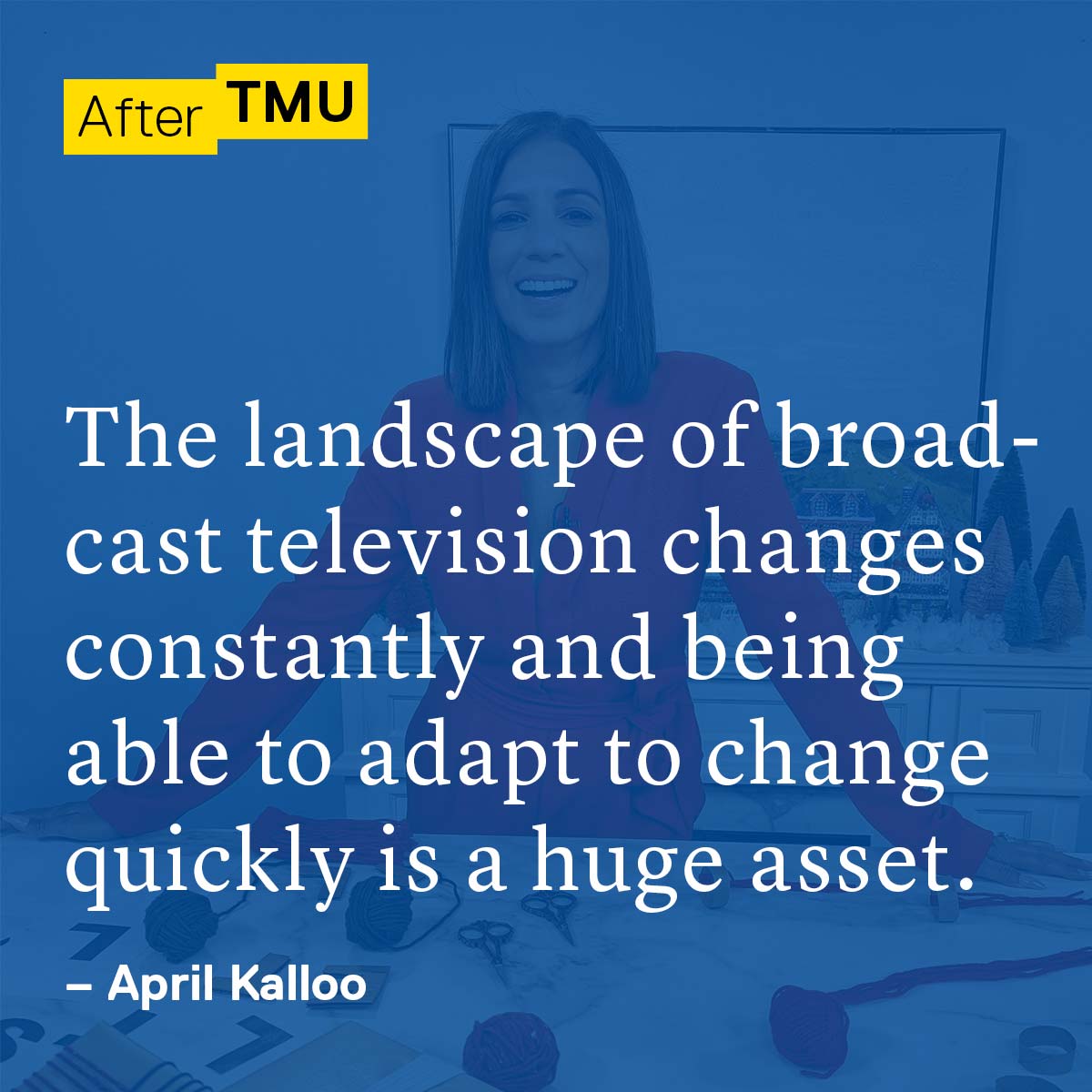After TMU - April Kalloo

April Kalloo
Radio and Television Arts ’05
Content Producer, Cityline
Why did you choose Toronto Metropolitan University (TMU) for both your studies?
TMU was THE school to apply to if you wanted to work in media. It was unmatched to any other program at the time in 2005. It was extremely hard to get in. I wasn’t accepted the first time I applied and I waited an entire year to apply again. I was selected for an interview, and I said to the professor that interviewed me: I will be here every year until you accept me, this is where I want to be, I want a career in television. I was elated when I was accepted!
Can you share specific skills or experiences gained during your time at TMU that have proven most valuable in shaping your career?
The hands-on experience that was given to me during my 4 years in the Radio and Television Arts program was so valuable. It allowed me to experience a real studio setting, a real newsroom, skills in production jobs, and perfecting my news writing. When I started internships and part time jobs in media after graduation, I felt prepared and excited to experience it all!
Which specific attributes or skills are crucial for success in the television industry?
Being able to roll with the punches. Expecting the unexpected. Accepting change at any time. The television industry is constantly evolving and we have to keep up with it. Learning new skills, new roles in television production is crucial to pursuing a career in media. The Canadian television scope is small in comparison to the world — it’s important to stay relevant and keep up with how the world is reacting to media and television as a whole. With over 19 years in the television industry, I have seen how fast everything can change. It’s an exciting career and you have to be prepared to pivot at any time.

From left to right: April Kalloo on the set of CityLine with host, Tracy Moore.
What are the best parts of your work; what are the more challenging parts?
The best part of my day to day working in television production is every day is different. I meet different people and the information we are broadcasting is unique each day. It’s fast paced and never boring. The challenging part of my job is the constant creativity. Brainstorming new content, new topics to increase viewer engagement. That can be exhausting at times, but always keeps it interesting.
Drawing from your 19 years as a producer, what important lessons have you learned?
Being open to change is a huge one. The landscape of broadcast television changes constantly and being able to adapt to change quickly is a huge asset. In addition to that, loving what you do is a big part of why I have succeeded at my career. I have so much passion for my job, I love every single day I am producing. I am so grateful my office is a television studio. My colleagues are family and we have a lot of fun every day.
How would you describe your professional growth over the years, and to what extent has continuous upskilling played a role?
I have grown so much as a producer. I started in a live television environment for the first 15 years of my career. It was fast paced, exciting, and challenging all at once. I learned how to think on my feet, produce meaningful content and connect with viewers on a personal level. I now produce daytime television and it has slowed down my thought process in such a way that I have created important conversations that have truly resonated with our viewers.

In such a competitive field, what advice would you give students and recent graduates?
Anything and everything you have learned that can translate to multiple ways you can contribute to multiple positions. You are competing with so many others that want a chance at a production/media career. You have to stand out and be the one that can contribute to a team on many levels.
Stay focused and keep going no matter what. You will get a lot of “no’s” — and only a few “yes’”. Take every opportunity and learn everything you can.
From where do you draw inspiration for developing new segment ideas and engaging your audience creatively?
The landscape for media has completely changed. Social media is the driver, Television competes with social media, that is where the inspiration comes from. What are viewers obsessed with right now? How can we engage viewers to watch daytime television content? We work with trends and viral topics that inspire and spark new shows and ideas. We also constantly post all of our content online — we have viewers all over the world that watch our show on YouTube every day!
Among your career accomplishments, which one stands out as your personal favourite?
I have many, but one moment I gravitate to is a special I did on Breakfast Television. Viewers nominated others that constantly give back to their community, help others, and never put themselves first. I filled our studio with 25 of those people and surprised them with gifts, prizes, and donations. One of them was so special, a mother (from the East coast) nominated her daughter who lived in Toronto — I flew her Mom down to surprise her in the studio — it was a moment I will never forget.
If you could start all over again, would you change your career path in any way?
I wouldn’t. This is what I wanted to do since I was 16 years old. I did the school announcements in high school and one of my teachers came up to me and told me I should look into broadcasting. He showed me the program at TMU and that was it. I was focused and looking back now — I didn’t lose sight of my goals.